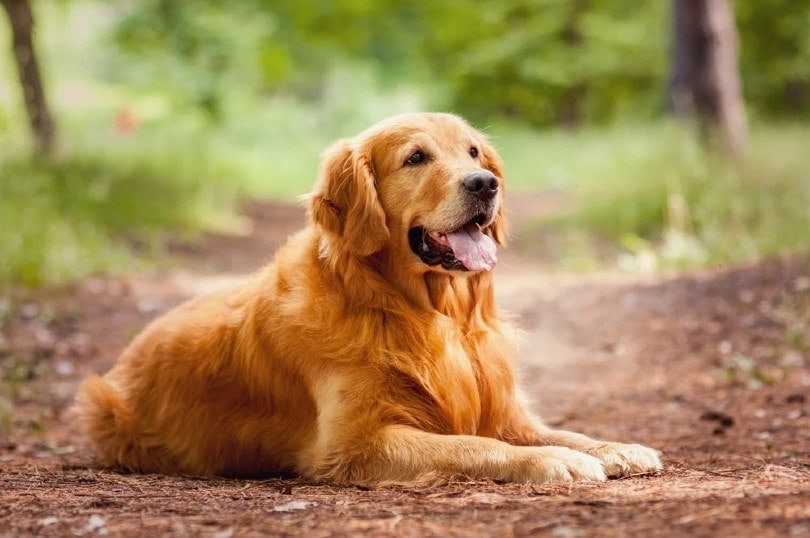Why Does My Dog Howl When I Come Home? 4 Reasons & How to Prevent It

Updated on
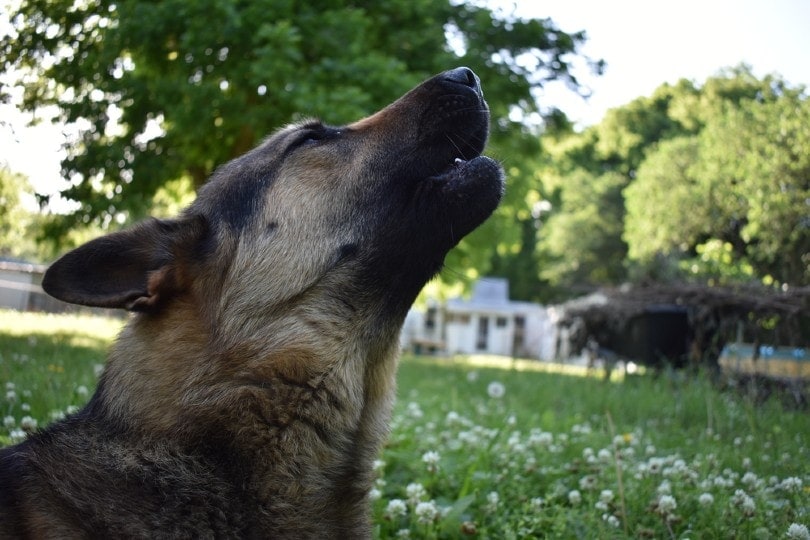
Click to Skip Ahead
Dog owners appreciate a warm welcome when they get home, but eventually, overly enthusiastic greetings like howling can become a little off-putting. If the noise doesn’t wreck your sanity, it will ruin your relationship with the neighbors, forcing you to figure out why your dog does it.
Pinpointing the reason for the howling benefits your dog, too. While they’re easy to find irritating, vocalizations are vital for our pets to communicate stress. To help everyone in the household find relief from the issue, let’s explore four reasons why your dog howls when you come home.
The 4 Reasons Why Your Dog Howls When You Come Home
1. They’re Responding to Your Car Locking
Howling is a deeply instilled trait borrowed from the dog’s wolf ancestors. In the wild, a common reason for wolves to howl was to communicate, responding to loud, high-pitched noises with their cry. They may call out in a friendly way to meet up with the other wolf and unite the pack or use their howl to fend off encroaching animals.
The same principles can work when you arrive home. If you lock the car and your dog howls, it could be a response to the noise. The howling may be brief, as they only get vocal when the car sounds. Momentary vocalizations aren’t always an issue, but if it becomes excessive or bothersome for neighbors, you can try to reduce it with redirection.
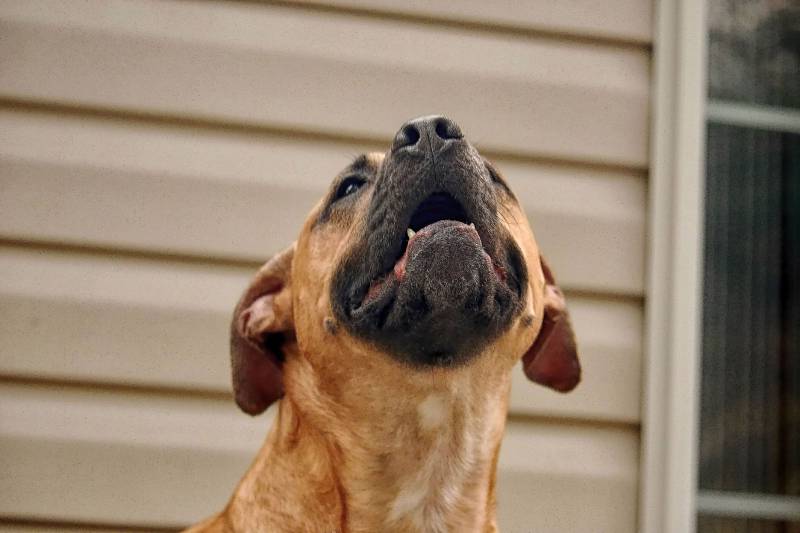
2. They’re Excited to See You
Dogs are man’s best friend and vice versa. It shouldn’t surprise any loving dog owner that their pup gets excited when they come home. In their world, you represent playtime, feeding time, cuddles, and rewards that can excite any pet.
3. They Need Something From You
A dog’s howling can also indicate they want something from you. You may walk through the door and immediately give them pets or treats. After a while, it becomes routine as your dog associates their howling with your reward.
In these instances, you’ll have to replace the howling by ignoring it and rewarding a different, quieter behavior.
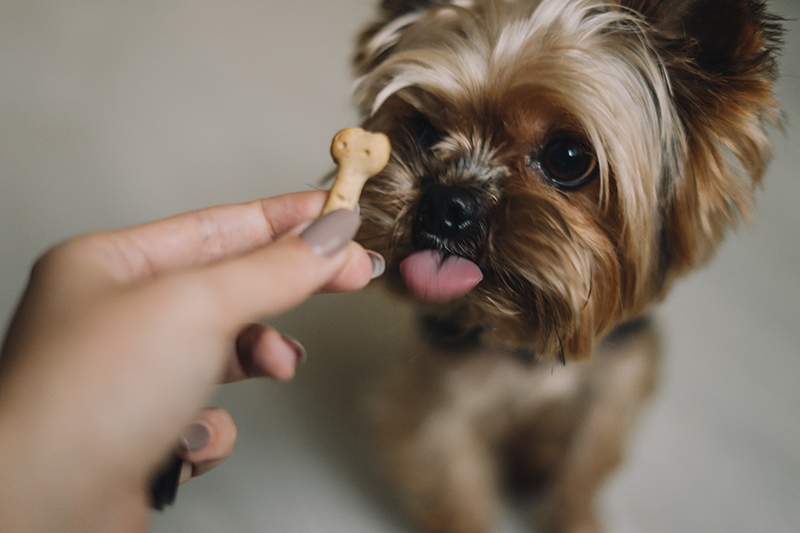
4. Your Dog Is Sick or Suffering Separation Anxiety
Sickness or separation anxiety is rarely a reason for your dog to howl exclusively when you come home. Even if your pet has been noisy all day, you may only notice it as you pull into the driveway.
If your dog howls when you arrive, talk to your neighbors to see whether it occurs throughout the day or only when you come home. Contact your vet to rule out stress, depression, and a physical illness contributing to the howling. They can help you identify the underlying issue and offer treatment, advice, or referrals to behavioral experts in your area.
How Do I Reduce My Dog’s Howling?
Resolving your dog’s howling when you come home depends on the cause. When it’s a knee-jerk reaction to hearing you arrive, training your dog the “Quiet” command may be enough to fix the problem. Other times, a related fear, phobia, or stress driving the action could require a more patient, multi-faceted approach to change your dog’s attitudes and emotions.
Regardless of the issue, early action is essential to stop howling from becoming an established habit. It will only be more challenging to fix the longer it progresses. The following are a few tips for resolving the problem.
1. Ignore the Behavior
As much as we want the howling to end, responding positively with treats, food, or toys to stop the noise will only perpetuate the issue. Your dogs may know you’ll give them what they want if they get noisy. You tell them that not only is it okay to howl, but you’ll reward them richly for it.
If your dog thinks they’ll get something from you, show them howling will only make you ignore them. Turn your back, cross your arms, and give them zero attention. Once they calm down and stop howling, you can reward them with treats, toys, and attention.
Don’t punish your dog by saying “No” when they howl. Dogs will often take any attention they can get, whether good or bad, and your scolding will only show them that making a raucous call is an effective way to get yours. Rather than react negatively, pretend they don’t exist until the howling stops.
2. Reward the Quiet
The flipside of ignoring the howling is recognizing the quiet. Praise and reward your dog when they relax, showing that a calm and quiet pup is the one that receives attention. When your dog stays calm for several seconds, reward them with their favorite toy or treat.
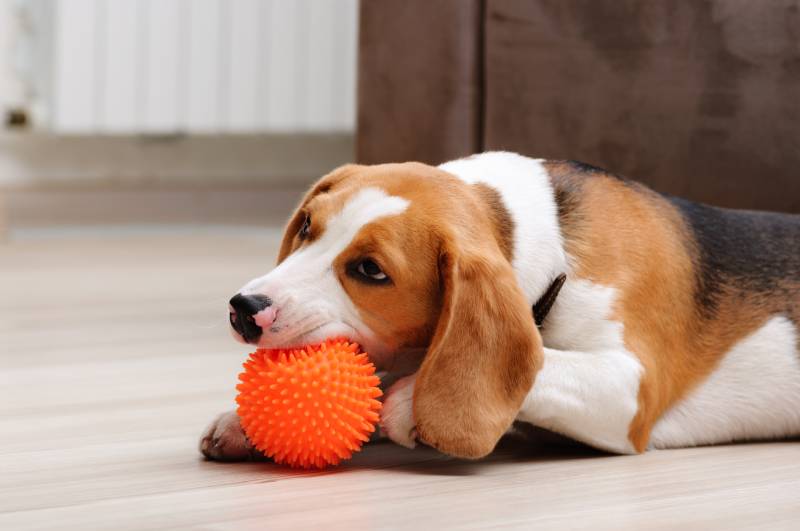
3. Make Your Dog Comfortable
A lack of stimulation is perhaps the easiest way to inspire poor manners in any dog breed. If your dog is bored or hungry, they could howl when you get home out of anxious excitement.
You can often avoid this behavior by ensuring your dog is well-fed and has unique away-time toys while you’re gone. Mental stimulation is even more crucial with intelligent and active dogs like Border Collies to keep them calm and docile.
When your dog finds satisfaction in their alone time, they won’t be overwhelmingly enthusiastic when it comes to an end.
4. Bond With Your Dog
Howling is one action we might file under “bad behaviors.” As with many other undesirable habits, like chewing our shoes or anxious pacing, the solution often involves our engagement with our dogs.
Understimulated dogs become aloof and frustrated, often releasing their pent-up energy in all the wrong ways. The problem isn’t theirs to solve. Owners give dogs everything they have, putting the responsibility on us to manage the boredom, stress, and depression that leads to howling.
However, you can research how much daily activity your dog needs and build it into your routine. Exercise your dog before you leave for the day. You’ll forge a stronger bond with your dog while wearing them out, helping them stay more relaxed, upbeat, and cooperative in the house.
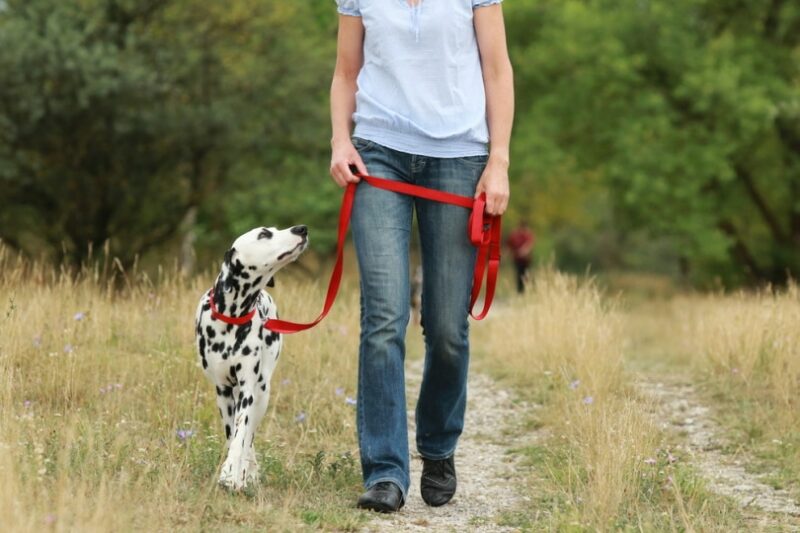
5. Get Help from the Family
Training a dog not to howl isn’t easy when you’re moving from the car to the house. But if you have family members at home with your dog when you return, you can mobilize them to help you quiet the cacophony.
Alert your family that you’re on the way home. When you arrive, they can redirect your dog’s behavior with toys or treats before they can start howling, helping to establish a new normal in the house and showing that the noise is unnecessary.
6. Work with an Animal Behaviorist
If your dog’s howling isn’t a simple reactive behavior to your arrival, you may need to address a deep-seated fear or stressor. Training out emotional responses usually takes patient counterconditioning and desensitization. Experienced owners with enough time may have the capacity to accomplish this alone. In many cases, the more efficient approach is to work with an animal behaviorist.
Your vet is your first resource to find help with your dog’s howling behavior. Although not all vets have specialized training in behavioral issues like these, they can refer you to a Certified Applied Animal Behaviorist (CAAB) or a Diplomate of the American College of Veterinary Behaviorists (DACVB).
A CAAB has a graduate degree in behavioral studies to advise and manage issues like attention-seeking, separation anxiety, noise fears, and other behavioral causes of howling. They cannot prescribe medications for your dog but may partner with a vet who can. As a veterinarian, a DACVB has the ability to prescribe medications alongside personalized treatments to address your dog’s behavior.
What Dog Breeds Howl the Most?
All dogs can howl, but some breeds are more prone to vocalizations than others. As it’s an inherited response from their ancestors, older breeds more closely related to wolves often show similar vocal responses, such as howling.
Studies have shown ancient breeds like Huskies, Chow Chows, and Shar-peis respond to wolf howls with similar howls more so than modern breeds. Age may also play a factor, as older dogs are more likely to howl and show other stress behaviors.
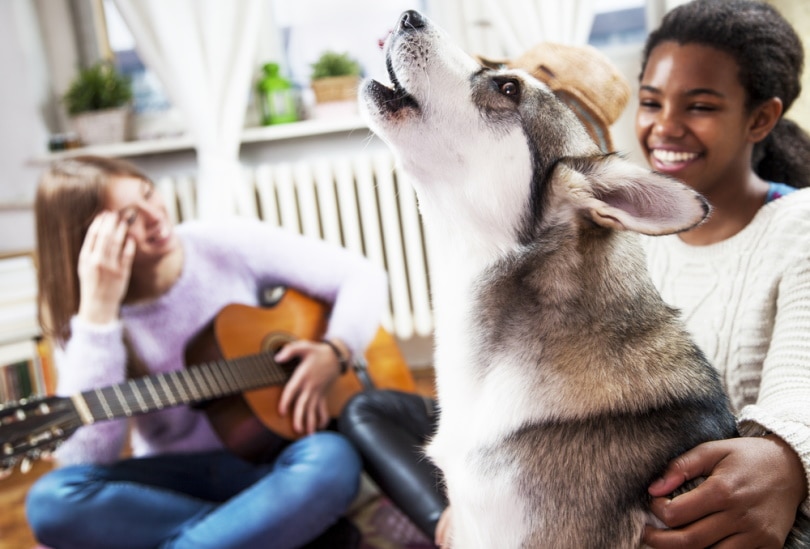
Conclusion
Although it may require expert intervention, you can often take simple steps to address your dog’s howling. If they only do it when you return to the house, make the extra effort to take care of their needs before you leave. Let them eat, urinate, and play before getting comfortable in their designated space, and they’ll have fewer reasons to howl when you come home.
Featured Image Credit: Samantha Gould, Shutterstock



